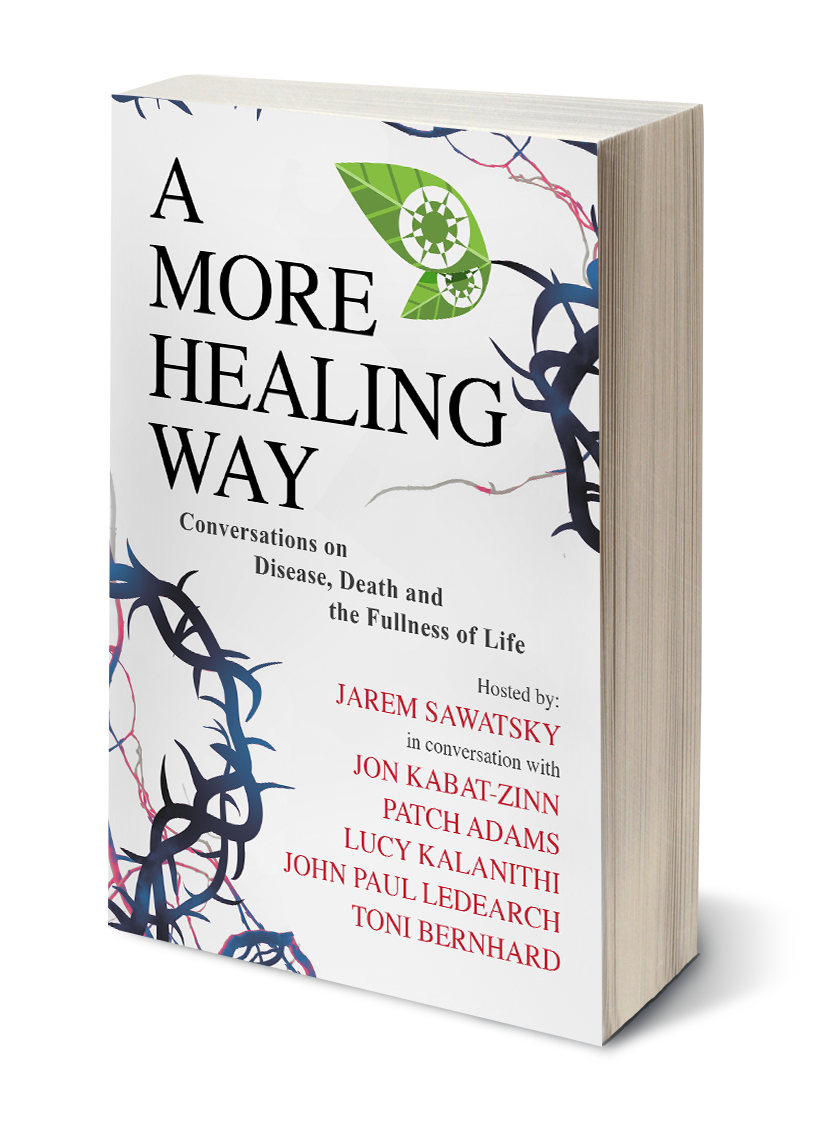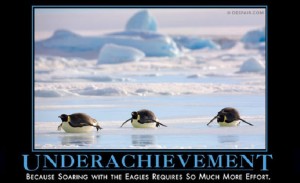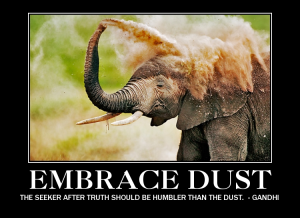
Where should I send the audio and video series?

Where should I send the audio and video series?
There are countless posts on how to achieve more success in life, but very few on how to embrace the downward path of losing your mind. We have success tips for leaders, but very few for 46.8 million people worldwide who have some form of dementia. With worldwide numbers of people living with dementia set to rise to 131.5 million by 2050, this community needs some pithy keys for what could be called demented success, or keys to enjoy losing your mind.
This work is inspired, in part, by the work of Nobel Peace Laureate, Muhammad Yunus. He said it is very easy to win a Nobel Peace Prize! You just have to do two things:
So I found a Time Magazine article about Stanford MBA school professor Jeffrey Pfeffer, who has recently published a book outlining “Six Keys to Success” which most high achievers share. Following Yunus’ example, the six keys below are the opposite for those proposed by the Stanford professor and Time Magazine.
I write as one with a form of dementia and I come from a long line of demented ancestors. On long-term disability as a professor in peace and conflict studies, I have been exploring how to embrace the path of losing your mind. While I am still having some withdrawal symptoms from my days of over-achieving, every day I practice losing my mind and trying to enjoy each step. My blog, Dancing with Elephants: A Beginners Guide to Losing Your Mind, explores just these themes.
So here are my 6 Keys to Enjoy Losing Your Mind. I have tried put each key into practice. Following Yunus’s example, this blog does not reflect on what you could do or should do. It simply shares stories of what I have done, over the last year.
 Embrace losing your mind.Throw a party for yourself and invite everyone you know to come and help send you on this new mad journey. Take inspiration from the traditional village idiot who sits on a fence. Be a fence sitter, watch others, laugh at high achievers because sometimes it takes an idiot to raise a village. Let go of evaluating yourself based on what you have done. Become a low achiever and a high celebrator of life. Stop running and start to party.
Embrace losing your mind.Throw a party for yourself and invite everyone you know to come and help send you on this new mad journey. Take inspiration from the traditional village idiot who sits on a fence. Be a fence sitter, watch others, laugh at high achievers because sometimes it takes an idiot to raise a village. Let go of evaluating yourself based on what you have done. Become a low achiever and a high celebrator of life. Stop running and start to party.
If someone asks you what you did during the day, tell them “Il dolce far niente.” They might think you’re drunk but it means “the sweetness of doing nothing”. Embrace the “now” and let go of the “not yet”. A healing path only opens as you travel it. Don’t let others name your journey. Rename your “disease” something like Lottery or Sunburst. Giving up having goals may be difficult at first. As you wean yourself off goals, you may create some temporary goals. For example, go to your lawyer and tell him/her about your dementia and ask the lawyer at what point you are no longer criminally responsible because you have a list of things you would like to do when you reach that point. Don’t make decisions as stepping stones that lead to some other plan; enjoy each moment. Be kind to your family. Wander aimlessly. Just enjoy each step.
There is not time to wait for future destinations, so be destination-less. Become a lover without borders.
Skip everything that does not give you joy. You have bigger fish to fry. Train your friends, family, and community that you don’t go to meetings or gatherings (unless they give you joy). If the company stays too long, get up – don’t say what you are doing – and go to bed. As you practice this key to success, fear will decrease its grip on you. Be kind to your family. Use this new courage to surprise others with joy. Meet road rage with the language of love by pretending you only speak French. When neighbours yell at your wife, go knock on their doors, introduce yourself and tell them how disrespectful they were to your relations. My uncle, who has a form of dementia was banned from Best Buy for life for peeing in the store (not in the bathroom). Use him as a role model. How many places can you be banned from? Use this new freedom wisely.

The only power others have over you is that which you give them. So don’t. Remove consent. Stand up – without fear – for the things of love. Be kind to everyone. If they insult you, pocket it. You don’t need to respond. However, sometimes silence slides into complicity with that which is wrong. For example, if you greet a neighbourhood grouch with kindness and he insults you, do nothing. If he takes a swing at your dog with an umbrella, you need to speak. Speak kindly and give an opportunity to get back on the right track. If he refuses, say “Be a man, apologize.” Keep saying this with increasing volume until he leaves or apologizes. Then you should walk away imagining a world where men will not be judged by their ability to be violent but by their willingness to apologize.
Learn to live like the dust. Go home to the earth. Touch the earth and embrace you dustness. Bury your head and your heart into the earth. Walk gently; go at your own pace. Look down on no one. Be kind to your family. Embrace the way of the dust.
They call it dis-ease for a reason – your freedom comes from the fact that you make others feel ill at ease (dis-ease). They are more afraid of you than you are of them. If you want people to back away from you, rock back and forth and talk nonsense out loud. You will create more dis-ease and they will back off. Learn the practice of letting go of all of your entitlements because there is an uncommon freedom on the other side of entitlements. If someone in authority insults you, pretend not to notice. Instead, tell them how thankful you are that someone so wise would offer you such encouragement. If you want, ask if you can be BFFs. Cultivate conflicts when systems need changing. Be kind to your family.
Learn to laugh at yourself, often. This can be painful at first but soon it will be a form of entertainment for you. If your form of dementia makes you prone to dropping things, don’t apologize. If you accidentally pour a bit of water on your lap, look the company straight in the eye and then pour the rest of the water on your lap. Kids often don’t know how to respond to those in their lives with dementia. So use your situation to make them laugh. If you have involuntary movements, give the kids a slight smack and then say “Sorry, it’s the disease. I can’t help it.” For adults, apologize in advance and then smack them, gently. Remember, don’t battle or conquer anything. If you have no self then there is nothing you need to protect with violence. Be kind to your family. Remember your life is but dust. Embrace wisdom wherever you find it, especially if it seems to be way out of the box.
As so many of us are in the process of losing our minds, I look forward to hearing other people’s keys and stories to successfully losing your mind. Dementia is no one’s life dream. However, that doesn’t mean that you can’t treat it like a form of travel and enjoy the new terrain and the demented locals.
Know anyone who could benefit from these keys to success in losing your mind? Share this post on facebook. Let the world know about the value of demented success.
My dad died with dementia. Most of his life he was a ‘normal’ guy, ie he harbored every slight, deeply resented children who didn’t do what he thought they should, and spent much energy trying to keep a lid on it all. Dementia stripped him of the past. He forgot who he hated and why as well as what he’d ordered for lunch ten minutes before at the restaurant. At first it made him angry, people bringing him strange food, but then he accepted it and learned to delight in each new dish, as if he’d never tried it before. And he came to live entirely in the present, as that was all he had left. And then he was a very wonderful, healing person. to be around! If you want to be happy lose the past.
Thank you for sharing.Reading this has encouraged me to continue caring for my mother in the way that is comfortable for her regardless of what others might say.Family members are very opinions but offer little help.
Jarem, thank yu for this amazing post….I am the widow (4 years) of a loving, wonderful man, who lost his mind, and his physicality, and his life, to a 17 year journey with Alzheimer’s…..I observed and supported, what you so eloquently describe in this post…..( I learnt ALOT).
I am reading “ Dancing with Elephants”…thank u, so much…
I’m a bit torn about your post, seems so hopeless but then hopeful at times. I’m 43 and I have Huntington’s disease. I’m still holding out for a better day tomorrow I guess.
I understand that feeling. When I learned about Huntington’s as kid – when my mom, grandmothers and aunts and uncle had the disease – I remember being told “but you don’t have to worry about Huntington’s there will be a cure by then if you have it.” I think I felt a bit betrayed by this positive wish which turned out to be a lie. So now, i don’t feel hopeless. But my hope lies in enjoying today, not hoping for an unknown future. I think if you asked my friends, they would I live with hope not hopelessness. In fact on most days, I am having fun. Your comment raises as very two very important questions – what do you hope for? Does that hope help live life in a good way?
Thanks for this. Yes, I too would be your blogger ( I thought you said bugger at first ).
I am a Parkie of some 7 or 8 years, but I will only dance with Parkinson if I get to somp on him with my elephantine feet and crush that s__ of a _____.
May I get your regular blogs?
Thanks. Len Wiebe – and I love that hangout they call CMU.
Yes; so glad to see a new blogger to add to the list. Especially love this quote: “Learn to embrace and dance with the elephant in the room. Figure out how you – and those around you – can enjoy the process of losing your mind.” Yes; my full legal name is Truthful Loving Kindness.
This is beautiful, funny, heart-warming and inspirational! I had a break-down years ago, and totally lost my mind. At times, I was extremely fearful and at others, plain delighted while others were obviously mystified and even scared. I was scary!! Now, I am menopausal, (hopefully that’s all it is), but I tell people that everything is a surprise – why am I here, what am I doing, what did I just say. Humour is a wonderful way to deal with life’s difficulties – I am so glad you have this wonderful sense of humour. May your road be gently rolling, and may God bless you with understanding people around you who can just smile and make you feel comfortable. It’s amazing how someone’s reaction can affect you so much….
Thank you for sharing some of your story and for your beautiful words. Continually learning to let go of fear and to not feed fear is one of the the hardest practices. Blessings on your journey.
I cleared my mind by laughing about your keys to enjoy losing your mind. In fact I had to scroll back and refresh my memory: what was the title again? I like to join my other friends three times a week, who like to laugh about losing “you know what” . They play cards and I sit and knit blankets for babies, who are born to single moms. I practice my ability to remember recent memory. I knit in increments of eight rows. Right now I am on row seven. I remember! When I get to the car and I remember that my wallet is not with me, I say,”Good for you, you remembered before you got to the store.” When I get to the store I remember stuff that wasn’t even on my list.
I call that my mental list, as compared to my written on paper list. Long term memory is wonderful, because I often remember songs that I have not thought of in decades. They cheer me up immensely, and always “make my day” . I really like your book dancing with elephants, and I will never ever forget the time we met on the sidewalk in the Wolseley neighbourhood, and had this great conversation. Whoopie!